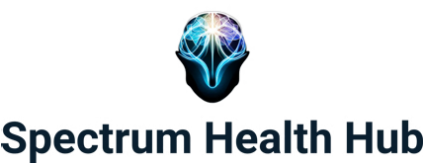Depressive Disorder Treatment
At Spectrum Health Hub, we provide tailored treatment for depressive disorders at our clinics in Boulder, CO; Dayton, OH; and Albuquerque, NM, as well as through accessible telehealth services. Our compassionate team utilizes evidence-based therapies, including Cognitive Behavioral Therapy (CBT) and medication management, to help individuals understand and manage their symptoms. Whether you prefer in-person care or virtual support, we are dedicated to helping you find relief and improve your overall quality of life.
Most Common Depressive Disorders
- Major Depressive Disorder (MDD)
- Persistent Depressive Disorder (Dysthymia)
- Bipolar Disorder
- Seasonal Affective Disorder (SAD)
- Psychotic Depression
- Premenstrual Dysphoric Disorder (PMDD)
- Disruptive Mood Dysregulation Disorder (DMDD)
- Atypical Depression
Common symptoms of depression
- Persistent sadness, emptiness, or a low mood
- Loss of interest or pleasure in activities once enjoyed (anhedonia)
- Significant changes in appetite or weight (either increased or decreased)
- Sleep disturbances, such as insomnia or oversleeping
- Fatigue or loss of energy
- Feelings of worthlessness, guilt, or self-blame
- Difficulty concentrating, making decisions, or remembering things
- Irritability or restlessness
- Physical symptoms like aches, pains, or digestive problems with no apparent cause
- Thoughts of death or suicide, suicide attempts, or self-harming behaviors
- Decreased sex drive or sexual difficulties
- Persistent feelings of hopelessness or helplessness
Treatments
Therapeutic Interventions
- Psychotherapy (Talk Therapy)
- Cognitive Behavioral Therapy (CBT)
- Interpersonal Therapy (IPT)
- Psychodynamic Therapy
- Medication
- Antidepressants (e.g., SSRIs, SNRIs, tricyclics, MAOIs)
- Mood Stabilizers (in some cases)
- Electroconvulsive Therapy (ECT) for severe, treatment-resistant depression.
Lifestyle and Self-Care:
- Regular Exercise
- Healthy Diet
- Adequate Sleep
- Stress Management Techniques (e.g., mindfulness, meditation)
- Social Support
- Limiting Alcohol and Substance Use
Additional Interventions:
- Light Therapy (for seasonal affective disorder)
- Transcranial Magnetic Stimulation (TMS)
- Ketamine Therapy (in some cases, often for treatment-resistant depression)
Start your journey to recovery—visit Spectrum Health Hub in Boulder, Dayton, or Albuquerque, or connect with us for depressive disorder treatment via telehealth today!
